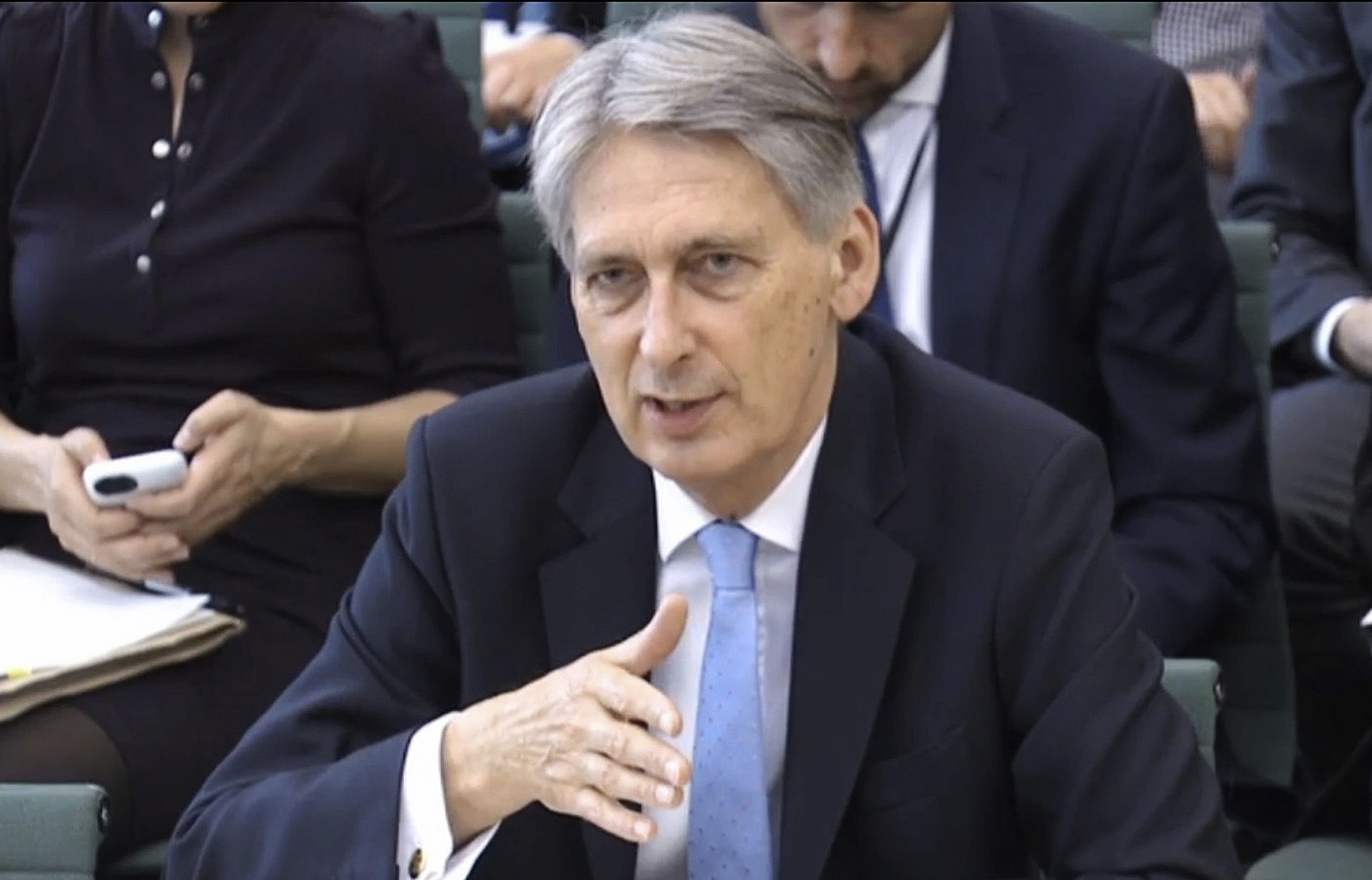BRUSSELS (AP) — Britain’s finance chief quickly backed away from comments that risked inflaming the Brexit talks Friday, saying he regretted describing the European Union as “the enemy” during an earlier television interview. Chancellor Philip Hammond retreated from the potentially
BRUSSELS (AP) — Britain’s finance chief quickly backed away from comments that risked inflaming the Brexit talks Friday, saying he regretted describing the European Union as “the enemy” during an earlier television interview.
Chancellor Philip Hammond retreated from the potentially volatile comments moments after they aired on Sky News, saying on Twitter that he was “making the point that we are united at home. I regret I used a poor choice of words.”
Hammond’s comments came hours after European Commission President Jean-Claude Juncker suggested that delays in the talks were due to Britain’s failure to meet EU demands that it meet all financial commitments that it made as a member of the bloc.
“They have to pay,” Juncker told students in his native Luxembourg. “If you are sitting in a bar and if you are ordering 28 beers and then suddenly one of your colleagues is leaving and is not paying — that’s not feasible.”
The tit-for-tat came after Hammond was sharply criticized by members of his own Conservative government for his cheerless approach to Brexit — the British departure from the EU. Some have accused Hammond of talking down the British economy.
While attending a meeting of the International Monetary Fund, Hammond told Sky that British officials should put their differences aside and work together on Brexit. The real opponents were in Brussels, he said.
“The enemy, the opponents, are out there, they’re on the other side of the negotiating table,” he said. “Those are the people we have to negotiate with, negotiate hard to get the very best deal for Britain.”
Various EU estimates suggest that Britain’s divorce bill could amount to between 60 billion euros to 100 billion euros ($70 billion to $120 billion). The British government has rejected such numbers.
Juncker’s comments came as EU leaders, without British Prime Minister Theresa May, prepare next week to launch preliminary talks on the outline of the EU-UK relationship once Britain leaves the bloc on March 29, 2019.
In a draft summit statement seen by The Associated Press, the leaders direct EU ministers and EU Brexit negotiator Michel Barnier “to start internal preparatory discussions” on future ties.
This would allow the EU to move quickly on elements like trade relations if negotiators make “sufficient progress” on the terms of the EU-U.K. divorce agreement by December.
Negotiations are moving slowly. EU leaders insist progress must be made on Britain’s divorce bill, the rights of citizens hit by Brexit and the future state of the Northern Ireland-Ireland border.
The leaders, who meet in Brussels on Oct 19-20 and again in mid-December, have refused to talk about future relations until that happens.
In the draft text, which could be modified, the leaders note that “while the U.K. has stated that it will honor its financial obligations taken during its membership, this has not yet been translated into a firm and concrete commitment from the UK to settle all of these obligations.”
Victoria Honeyman, a professor of politics at the University of Leeds, said that she believed Hammond’s remarks were directed at the EU machinery led by Barnier, rather than at the leaders of the member states, such as German chancellor Angela Merkel.
Given what others in May’s Cabinet, such as U.K. Foreign Secretary Boris Johnson, have said about the EU, it’s unlikely Hammond will get more than a slap on the wrist. The comments may even help EU negotiators.
“It gives you an insight into how things are going from the British perspective,” Honeyman said. “It’s kind of a Freudian slip of how they feel about the situation.”



